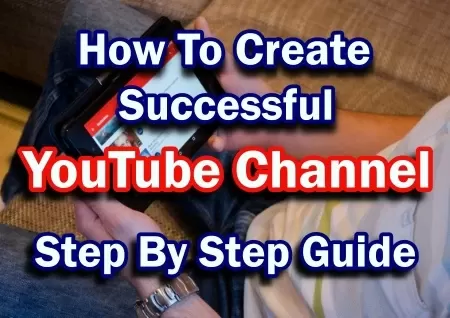How To Create Successful YouTube Channel And Monetization techniques

Creating a YouTube channel and enabling monetization involves several steps. Here’s a detailed guide to help you get started:
Steps To Create Successful YouTube Channel
Here are the steps guide you how to create YouTube channel and monetization techniques and requirements.
1. Create a YouTube Account:
If you don’t already have one, create a Google Account. This will serve as your YouTube account.
2. Create Your YouTube Channel:
Go to YouTube and sign in with your Google Account. Click on your profile picture in the top right corner and select “Your Channel.” Click “Create Channel” and follow the prompts to set up your channel.
3. Customize Your Channel:
Add a profile picture and channel art that represents your content.Write a compelling channel description, explaining what your channel is about.
4. Create and Upload Videos:
Create high-quality, engaging videos that your target audience will enjoy. Use good lighting, clear audio, and stable camera work. Edit your videos to make them polished and professional using video editing software. Upload your videos to your YouTube channel.
5. Optimize Your Videos for Search (SEO):
Use relevant keywords in your video title, description, and tags. Write detailed and accurate video descriptions. Use custom thumbnails and compelling video titles to attract viewers.
6. Enable Monetization:
To enable monetization on your YouTube channel, you need to meet these requirements:
- Live in a country or region where the YouTube Partner Program is available.
- Have more than 4,000 valid public watch hours in the last 12 months.
- Have more than 1,000 subscribers.
- Have a linked AdSense account.
7. Apply for Google AdSense:
Sign up for Google AdSense with the same Google account linked to your YouTube channel. Fill out the required information and submit your application for review. Once approved, you can start earning money from ads displayed on your videos.
8. Explore Other Monetization Options:
Channel Memberships: If you have more than 30,000 subscribers, you can enable channel memberships, allowing viewers to become paying members for exclusive perks. Super Chat and Super Stickers: Enabled during live streams, viewers can purchase Super Chat messages or Super Stickers to support you. Merchandise Shelf: If you have more than 10,000 subscribers, you can showcase and sell merchandise directly below your videos. YouTube Premium Revenue: You can earn a share of the revenue generated from YouTube Premium subscribers who watch your content.
9. Adhere to YouTube Policies:
Familiarize yourself with YouTube’s policies, including community guidelines, copyright, and monetization policies. Adhere to these policies to avoid penalties or account suspension.
10. Promote Your Videos:
Share your videos on social media platforms. Collaborate with other YouTubers to tap into their audience. Engage with your viewers through comments and social media to build a community.
11. Analyze and Improve:
Use YouTube Analytics to understand your audience, track video performance, and make data-driven decisions to improve your content.
Remember, building a successful YouTube channel takes time, consistency, and dedication. Focus on creating valuable content, engaging with your audience, and continuously improving your videos to grow your channel and increase your earnings.
Related queries to this article
- how to create successful youtube channel
- monetization
- techniques
Read more articles and stories on InstaSity General.


